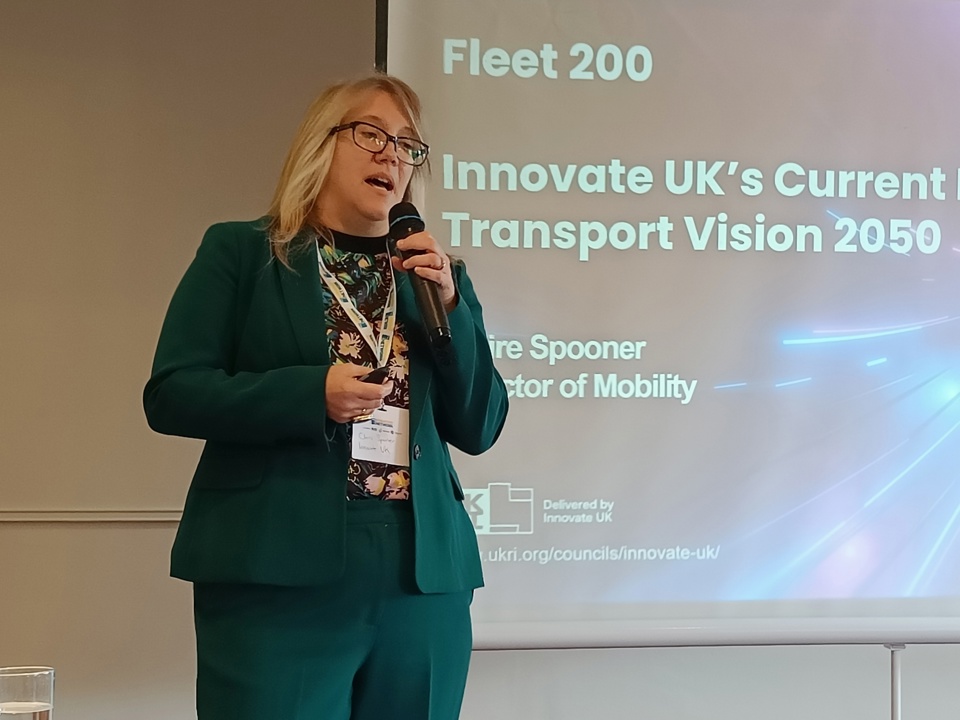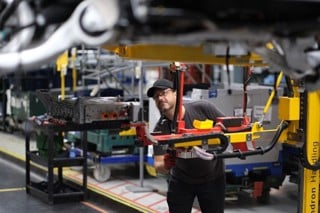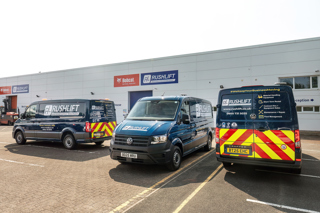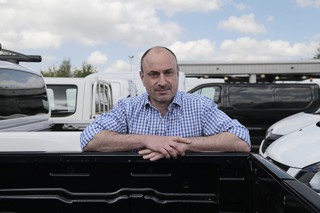The outcome of trials currently taking place of zero emission commercial vehicles will impact fleet procurement for decades to come, according to Claire Spooner, director of mobility, net zero at Innovate UK.
The agency is part of the government’s UK Research and Innovation organisation and aims to help companies grow through their development and commercialisation of new products, processes and services.
This includes providing funding for trials of clean transport technologies, including battery electric and hydrogen.
“The innovations we are funding now will not only impact your fleet purchases in the next few years, but will also impact your fleet purchases in the decades to come to ensure we can get to that net zero figure,” Spooner told delegates at the recent Fleet200 Strategy Network meeting in Bicester.
“Innovation matters to us. It’s vital to reduce our carbon emissions, to improve our air quality, increase personal and vehicle safety, and it actually affects what the streets look like when we all change to electric vehicles, and that will instrumentally change how our communities look and feel.
“These technological advances will improve safety and deliver greater efficiencies, and we should hopefully have some new business models on the back of that.”
One of the projects – which the Government, delivered in partnership with Innovate UK, has provided £200 million in funding towards - is the zero emission HGV and infrastructure demonstrator programme.
This features four separate projects to roll out up to 370 zero emission HGVs and deliver around 57 refuelling and electric charging sites.
Spooner said: “This programme is going to demonstrate hundreds of new battery electric and hydrogen vehicles in real-world applications. The whole point is to see them running, to make sure they are actually going to deliver.
“We can learn just as much when there are hiccups. We can use those lessons to make sure that when we do have the systems fully operational then they are very effective.
“The programme is really focusing on the heaviest vehicles on the longest routes to make sure that we have the full range of duty cycles to understand the cost of maintenance and the real-world logistical issues.”
The four projects are eFreight 2030, Project Electric Freightway by Gridserve, Project Zero Emission North (ZEN) Freight and the Hydrogen Aggregated Logistics (HyHaul) by Protium.
EFreight will provide Birmingham with one of the UK’s first EV charging hubs dedicated to HGVs, with fleet operators Wincanton, Welch’s Transport, Menzies Distribution and Kuehne+Nagel among its consortium members. They will operate around 140 electric trucks in a variety of scenarios to test their real-world feasibility.
Gridserve’s project aims to lay the foundations for a nationwide charging network dedicated to electric HGVs. It will see 140 battery electric HGVs provided by DAF and Volvo use 220 chargers across motorway service areas, truck stops and commercial depots.
The £41m HyHaul project will see 30 hydrogen fuel cell vehicles operate along the M4, while ZEN Freight involves operators taking on more than 70 battery electric and hydrogen fuel cell vehicles and sharing infrastructure wherever possible.
“Currently we’re in the funding of the two-year installation and purchasing phase,” said Spooner. “Then we will move on to the demonstration phase and there will be regular updates on these.”
Another project Innovate UK has provided funding to is Tees Valley Hydrogen Transport Hub. This will see four hydrogen refuelling stations installed across the region, with around 35 hydrogen vehicles used in real world use cases across a range of operators.
The project aims to show how green hydrogen, which does not produce any harmful emissions when used in a fuel cell, can be utilised in transport.
























Login to comment
Comments
No comments have been made yet.